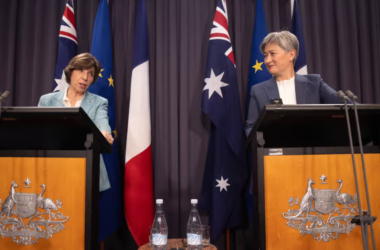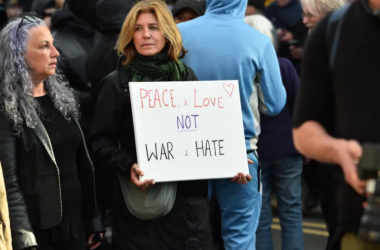In the midst of violent unrest across Britain, Prime Minister Keir Starmer is not only struggling to control the situation on the ground but also finding himself in a public spat with Elon Musk, the billionaire owner of the social media platform X. This clash underscores the UK government’s failure to address the root causes of the violence, while also attempting to deflect blame onto others.
Over the past week, Musk has used his platform to share inflammatory comments, memes, and videos about the riots to his 193 million followers on X. The unrest, sparked by widespread misinformation following a deadly stabbing in Southport, England, where three girls tragically lost their lives, has seen towns across the UK engulfed in violence.
In one of his more provocative posts, Musk declared, “Civil war is inevitable,” in response to a video showing fires in the streets, fireworks, and rioters clashing with police. This rhetoric, while certainly extreme, points to deeper issues that the UK government has failed to address—issues that have been simmering beneath the surface for years.
Starmer’s spokesperson responded by condemning Musk’s comments, stating there was “no justification” for such incendiary language. Yet, the prime minister’s rebuke comes off as a weak attempt to shift focus away from the government’s inability to manage the crisis. Musk, undeterred, continued to challenge Starmer directly, questioning why the government wasn’t protecting all communities equally—a criticism that strikes at the heart of the UK’s current social and political fractures.
The government’s response to these criticisms has been to dismiss them as unfounded, with ministers rejecting Musk’s claims of “two-tier policing,” a narrative popular among far-right circles. However, the fact remains that the UK government has failed to quell the violence, which has been fueled in part by online misinformation—a problem exacerbated by the very social media platforms that Starmer is now blaming.
Musk’s broader critique of the UK government fits into a pattern of his increasingly vocal interventions in global politics, particularly in areas where he sees governments failing to protect their citizens or uphold basic rights. His criticisms, particularly of immigration policies, resonate with many who feel that their concerns are being ignored by a government more focused on maintaining its image than addressing real issues.
Starmer, in an attempt to demonstrate leadership, posted on X that attacks on any community would not be tolerated. Yet, his efforts have been undermined by the reality on the ground—riots continue, and more than 400 arrests have been made. The government’s focus on blaming social media for the unrest, rather than addressing the underlying issues of social inequality, misinformation, and lack of public trust, reveals a troubling disconnect between the leadership and the people they are supposed to serve.
Some British lawmakers have even suggested summoning Musk before a parliamentary committee to answer questions about X’s role in the violence—a move that smacks more of a scapegoating effort than a genuine attempt to solve the problem. After all, the violence has been driven by longstanding issues that the government has failed to address, from immigration tensions to social inequality, all of which have been exacerbated by the recent spread of misinformation.
As Britain teeters on the brink of further unrest, with more protests reportedly planned, it is clear that the UK government’s approach to this crisis has been reactive, rather than proactive. Blaming social media platforms and their executives may be a convenient tactic, but it does little to address the systemic failures that have led to this point.
Prime Minister Starmer’s televised warning to social media companies, emphasizing that crimes committed online will be prosecuted, may be well-intentioned, but it rings hollow in the face of the government’s broader failures. Until the UK government takes meaningful action to address the underlying causes of the unrest, rather than simply trying to manage the fallout, these problems are likely to persist, with or without the interventions of high-profile figures like Elon Musk.








